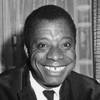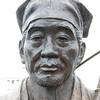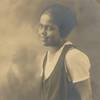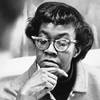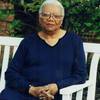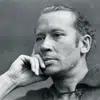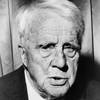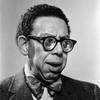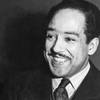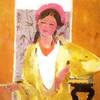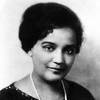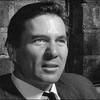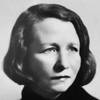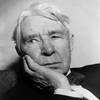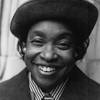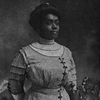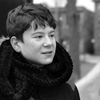Filter By
Bilingual
Because I speak Spanish
I can listen to my grandmother’s stories
and say familia, madre, amor.
Because I speak English
I can learn from my teacher
and say I love school.
Because I am bilingual
I can read libros and books,
I have amigos and friends,
I enjoy canciones and songs,
juegos and games,
and have twice as much fun.
And someday,
because I speak two languages,
I will be able to do twice as much,
to help twice as many people
and be twice as good in what I do.
Words are Birds
words
are birds
that arrive
with books
and spring
they
love
clouds
the wind
and trees
some words
are messengers
that come
from far away
from distant lands
for them
there are
no borders
only stars
moon and sun
some words
are familiar
like canaries
others are exotic
like the quetzal bird
some can stand
the cold
others migrate
with the sun
to the south
some words
die
caged—
they're difficult
to translate
and others
build nests
have chicks
warm them
feed them
teach them
how to fly
and one day
they go away
in flocks
the letters
on this page
are the prints
they leave
by the sea
Rally
(Miami, October 2008)
The awesome weight of the world had not yet descended
upon his athlete’s shoulders. I saw someone light but not feathered
job up to the rickety stage like a jock off the court
played my game did my best
and the silent crowd listened and dreamed.
The children sat high on their parents’ shoulders.
Then the crowd made noise that gathered and grew
until it was loud and was loud as the sea.
What it meant or would mean was not yet fixed
nor could be, though human beings ever tilt toward we.
Alone
Lying, thinking
Last night
How to find my soul a home
Where water is not thirsty
And bread loaf is not stone
I came up with one thing
And I don't believe I'm wrong
That nobody,
But nobody
Can make it out here alone.
Alone, all alone
Nobody, but nobody
Can make it out here alone.
There are some millionaires
With money they can't use
Their wives run round like banshees
Their children sing the blues
They've got expensive doctors
To cure their hearts of stone.
But nobody
No, nobody
Can make it out here alone.
Alone, all alone
Nobody, but nobody
Can make it out here alone.
Now if you listen closely
I'll tell you what I know
Storm clouds are gathering
The wind is gonna blow
The race of man is suffering
And I can hear the moan,
'Cause nobody,
But nobody
Can make it out here alone.
Alone, all alone
Nobody, but nobody
Can make it out here alone.
Life Doesn't Frighten Me
Shadows on the wall
Noises down the hall
Life doesn't frighten me at all
Bad dogs barking loud
Big ghosts in a cloud
Life doesn't frighten me at all
Mean old Mother Goose
Lions on the loose
They don't frighten me at all
Dragons breathing flame
On my counterpane
That doesn't frighten me at all.
I go boo
Make them shoo
I make fun
Way they run
I won't cry
So they fly
I just smile
They go wild
Life doesn't frighten me at all.
Tough guys fight
All alone at night
Life doesn't frighten me at all.
Panthers in the park
Strangers in the dark
No, they don't frighten me at all.
That new classroom where
Boys all pull my hair
(Kissy little girls
With their hair in curls)
They don't frighten me at all.
Don't show me frogs and snakes
And listen for my scream,
If I'm afraid at all
It's only in my dreams.
I've got a magic charm
That I keep up my sleeve
I can walk the ocean floor
And never have to breathe.
Life doesn't frighten me at all
Not at all
Not at all.
Life doesn't frighten me at all.
Untitled
Lord,
when you send the rain
think about it, please,
a little?
Do
not get carried away
by the sound of falling water,
the marvelous light
on the falling water.
I
am beneath that water.
It falls with great force
and the light
Blinds
me to the light.
When the winter chrysanthemums go
translated from the Japanese by Robert Hass
When the winter chrysanthemums go,
there's nothing to write about
but radishes.
excerpt from “Prayer for My Immigrant Relatives”
While they wait in long lines, legs shifting,
fingers growing tired of holding handrails,
pages of paperwork, give them patience.
Help them to recall the cobalt Mediterranean
or the green valleys full of vineyards and sheep.
When peoples’ words resemble the buzz
of beehives, help them to hear the music
of home, sung from balconies overflowing
with woven rugs and bundled vegetables...
give them the memory of their first step
onto solid land, after much ocean, air and clouds,
remind them of the phone call back home saying,
We arrived. Yes, thank God we made it, we are here.
Your Songs
When first you sang a song to me
With laughter shining from your eyes,
You trolled your music liltingly
With cadences of glad surprise.
In after years I heard you croon
In measures delicately slow
Of trees turned silver by the moon
And nocturnes sprites and lovers know.
And now I cannot hear you sing,
But love still holds your melody
For silence is a sounding thing
To one who listens hungrily.
The Ecchoing Green
The sun does arise,
And make happy the skies.
The merry bells ring
To welcome the Spring.
The sky-lark and thrush,
The birds of the bush,
Sing louder around,
To the bells’ cheerful sound.
While our sports shall be seen
On the Ecchoing Green.
Old John, with white hair
Does laugh away care,
Sitting under the oak,
Among the old folk,
They laugh at our play,
And soon they all say.
‘Such, such were the joys.
When we all girls & boys,
In our youth-time were seen,
On the Ecchoing Green.’
Till the little ones weary
No more can be merry
The sun does descend,
And our sports have an end:
Round the laps of their mothers,
Many sisters and brothers,
Like birds in their nest,
Are ready for rest;
And sport no more seen,
On the darkening Green.
The Tyger
Tyger! Tyger! burning bright
In the forests of the night,
What immortal hand or eye
Could frame thy fearful symmetry?
In what distant deeps or skies
Burnt the fire of thine eyes?
On what wings dare he aspire?
What the hand, dare sieze the fire?
And what shoulder, & what art,
Could twist the sinews of thy heart?
And when thy heart began to beat,
What dread hand? & what dread feet?
What the hammer? what the chain?
In what furnace was thy brain?
What the anvil? what dread grasp
Dare its deadly terrors clasp?
When the stars threw down their spears,
And water'd heaven with their tears,
Did he smile his work to see?
Did he who made the Lamb make thee?
Tyger! Tyger! burning bright
In the forests of the night,
What immortal hand or eye
Dare frame thy fearful symmetry?
A Boat
O beautiful
was the werewolf
in his evil forest.
We took him
to the carnival
and he started
crying
when he saw
the Ferris wheel.
Electric
green and red tears
flowed down
his furry cheeks.
He looked
like a boat
out on the dark
water.
Life
Life, believe, is not a dream
So dark as sages say;
Oft a little morning rain
Foretells a pleasant day.
Sometimes there are clouds of gloom,
But these are transient all;
If the shower will make the roses bloom,
O why lament its fall?
Rapidly, merrily,
Life’s sunny hours flit by,
Gratefully, cheerily
Enjoy them as they fly!
What though Death at times steps in,
And calls our Best away?
What though sorrow seems to win,
O’er hope, a heavy sway?
Yet Hope again elastic springs,
Unconquered, though she fell;
Still buoyant are her golden wings,
Still strong to bear us well.
Manfully, fearlessly,
The day of trial bear,
For gloriously, victoriously,
Can courage quell despair!
Speech to the Young: Speech to the Progress-Toward
Say to them,
say to the down-keepers,
the sun-slappers,
the self-soilers,
the harmony-hushers,
"Even if you are not ready for day
it cannot always be night."
You will be right.
For that is the hard home-run.
Live not for battles won.
Live not for the-end-of-the-song.
Live in the along.
The Egg Boiler
Being you, you cut your poetry from wood.
The boiling of an egg is heavy art.
You come upon it as an artist should,
With rich-eyed passion, and with straining heart.
We fools, we cut our poems out of air.
Night color, wind soprano, and such stuff.
And sometimes weightlessness is much to bear.
You mock it, though, you name it Not Enough.
The egg, spooned gently to the avid pan,
And left the strick three minute, or the four,
Is your Enough and art for any man.
We fools give courteous ear--then cut some more,
Shaping a gorgeous Nothingness from cloud.
You watch us, eat your egg, and laugh aloud.
excerpt from “Country of Water”
I know who I am because I believe it
I know
I know
Who I
Who I
Believe
Believe
Believe
In three’s we will come
A drip of water moving against a boulder
Water slow and steady can turn rock
Into a pebble
Like anxiety
Like self-doubt
Smaller
Smaller
Until gone
Let your love for yourself be the water
Be the rise
Be the mist
Let you be
A Boat, Beneath a Sunny Sky
A boat, beneath a sunny sky
Lingering onward dreamily
In an evening of July—
Children three that nestle near,
Eager eye and willing ear,
Pleased a simple tale to hear—
Long has paled that sunny sky:
Echoes fade and memories die:
Autumn frosts have slain July.
Still she haunts me, phantomwise,
Alice moving under skies
Never seen by waking eyes.
Children yet, the tale to hear,
Eager eye and willing ear,
Lovingly shall nestle near.
In a Wonderland they lie,
Dreaming as the days go by,
Dreaming as the summers die:
Ever drifting down the stream—
Lingering in the golden gleam—
Life, what is it but a dream?
Fate
By the time you know
your fate, it’s too late to change.
The birds in cages
know this but still chew the bars.
Maybe hope tastes like metal.
excerpt from “When I Grow Up I Want to be a List of Further Possibilities”
To be a backpack of PB&J & every
thing I know, for my brothers, who are becoming
their own storms. To be, for me, nobody,
homebody, body in bed watching TV. To go 2D
& be a painting, an amateur’s hilltop & stars,
simple decoration for the new apartment
with you. To be close, J.,
to everything that is close to you—
blue blanket, red cup, green shoes
with pink laces.
To be the blue & the red.
The green, the hot pink.
birth-day
today we are possible.
the morning, green and laundry-sweet,
opens itself and we enter
blind and mewling.
everything waits for us:
the snow kingdom
sparkling and silent
in its glacial cap,
the cane fields
shining and sweet
in the sun-drenched south.
as the day arrives
with all its clumsy blessings
what we will become
waits in us like an ache.
Differences of Opinion
He tells her that the earth is flat —
He knows the facts, and that is that.
In altercations fierce and long
She tries her best to prove him wrong.
But he has learned to argue well.
He calls her arguments unsound
And often asks her not to yell.
She cannot win. He stands his ground.
The planet goes on being round.
Evidence
A great deal of anecdotal evidence suggests that we respond positively to birdsong.
-Scientific researcher quoted in The Daily Telegraph 8.2.2012
Centuries of English verse
Suggest the selfsame thing:
A negative response is rare
When birds are heard to sing.
What’s the use of poetry?
You ask. Well, here’s a start:
It’s anecdotal evidence
About the human heart.
Confession
If for a day joy masters me,
Think not my wounds are healed;
Far deeper than the scars you see,
I keep the roots concealed.
They shall bear blossoms with the fall;
I have their word for this,
Who tend my roots with rains of gall,
And suns of prejudice.
maggie and milly and molly and may
maggie and milly and molly and may
went down to the beach(to play one day)
and maggie discovered a shell that sang
so sweetly she couldn't remember her troubles,and
milly befriended a stranded star
whose rays five languid fingers were;
and molly was chased by a horrible thing
which raced sideways while blowing bubbles:and
may came home with a smooth round stone
as small as a world and as large as alone.
For whatever we lose(like a you or a me)
it's always ourselves we find in the sea
Cherry blossoms
I went down to
mingle my breath
with the breath
of the cherry blossoms.
There were photographers:
Mothers arranging their
children against
gnarled old trees;
a couple, hugging,
asks a passerby
to snap them
like that,
so that their love
will always be caught
between two friendships:
ours & the friendship
of the cherry trees.
Oh Cherry,
why can’t my poems
be as beautiful?
A young woman in a fur-trimmed
coat sets a card table
with linens, candles,
a picnic basket & wine.
A father tips
a boy’s wheelchair back
so he can gaze
up at a branched
heaven.
All around us
the blossoms
flurry down
whispering,
Be patient
you have an ancient beauty.
Be patient,
you have an ancient beauty.
If I Can Stop One Heart from Breaking
If I can stop one heart from breaking,
I shall not live in vain;
If I can ease one life the aching,
Or cool one pain,
Or help one fainting robin
Unto his nest again,
I shall not live in vain.
I’m Nobody! Who are you?
I'm Nobody! Who are you?
Are you – Nobody – too?
Then there's a pair of us!
Don't tell! they'd advertise – you know!
How dreary – to be – Somebody!
How public – like a Frog –
To tell one's name – the livelong June –
To an admiring Bog!
The Fall
There was a man who found two leaves and came indoors holding them
out saying to his parents that he was a tree.
To which they said then go into the yard and do not grow in the living room
as your roots may ruin the carpet.
He said I was fooling I am not a tree and he dropped his leaves.
But his parents said look it is fall.
Instructions Before Stuttering
Tread where the name has prepared
A full name full of desire
Clay like plenty
Love is sensitive
In the space of crying
The name goes ahead
To prepare you
Grasp the vessel
With both hands and
Walk slow
A road of red clover
Opens—
The Republic of Poetry
For Chile
In the republic of poetry,
a train full of poets
rolls south in the rain
as plum trees rock
and horses kick the air,
and village bands
parade down the aisle
with trumpets, with bowler hats,
followed by the president
of the republic,
shaking every hand.
In the republic of poetry,
monks print verses about the night
on boxes of monastery chocolate,
kitchens in restaurants
use odes for recipes
from eel to artichoke,
and poets eat for free.
In the republic of poetry,
poets read to the baboons
at the zoo, and all the primates,
poets and baboons alike, scream for joy.
In the republic of poetry,
poets rent a helicopter
to bombard the national palace
with poems on bookmarks,
and everyone in the courtyard
rushes to grab a poem
fluttering from the sky,
blinded by weeping.
In the republic of poetry,
the guard at the airport
will not allow you to leave the country
until you declaim a poem for her
and she says Ah! Beautiful.
Bilingual / Bilingüe
My father liked them separate, one there,
one here (allá y aquí), as if aware
that words might cut in two his daughter’s heart
(el corazón) and lock the alien part
to what he was—his memory, his name
(su nombre)—with a key he could not claim.
“English outside this door, Spanish inside,”
he said, “y basta.” But who can divide
the world, the word (mundo y palabra) from
any child? I knew how to be dumb
and stubborn (testaruda); late, in bed,
I hoarded secret syllables I read
until my tongue (mi lengua) learned to run
where his stumbled. And still the heart was one.
I like to think he knew that, even when,
proud (orgulloso) of his daughter’s pen,
he stood outside mis versos, half in fear
of words he loved but wanted not to hear.
Dust of Snow
The way a crow
Shook down on me
The dust of snow
From a hemlock tree
Has given my heart
A change of mood
And saved some part
Of a day I had rued.
The Road Not Taken
Two roads diverged in a yellow wood,
And sorry I could not travel both
And be one traveler, long I stood
And looked down one as far as I could
To where it bent in the undergrowth;
Then took the other, as just as fair,
And having perhaps the better claim,
Because it was grassy and wanted wear;
Though as for that the passing there
Had worn them really about the same,
And both that morning equally lay
In leaves no step had trodden black.
Oh, I kept the first for another day!
Yet knowing how way leads on to way,
I doubted if I should ever come back.
I shall be telling this with a sigh
Somewhere ages and ages hence:
Two roads diverged in a wood, and I—
I took the one less traveled by,
And that has made all the difference.
BLK History Month
If Black History Month is not
viable then wind does not
carry the seeds and drop them
on fertile ground
rain does not
dampen the land
and encourage the seeds
to root
sun does not
warm the earth
and kiss the seedlings
and tell them plain:
You’re As Good As Anybody Else
You’ve Got A Place Here, Too
Knoxville, Tennessee
I always like summer
best
you can eat fresh corn
from daddy's garden
and okra
and greens
and cabbage
and lots of
barbecue
and buttermilk
and homemade ice-cream
at the church picnic
and listen to
gospel music
outside
at the church
homecoming
and go to the mountains with
your grandmother
and go barefooted
and be warm
all the time
not only when you go to bed
and sleep
Ars Poetica
May the poems be
the little snail’s trail.
Everywhere I go,
every inch: quiet record
of the foot’s silver prayer
I lived once.
Thank you.
It was here.
excerpt from “Change Sings”
I can hear change humming
In its loudest, proudest song.
I don’t fear change coming,
And so I sing along.
I’m a chant that rises and rings.
There is hope where my change sings.
Though some don’t understand it,
Those windmills of mysteries,
I sing with all the planet,
And its hills of histories.
Nature Knows Its Math
Divide
the year
into seasons,
four,
subtract
the snow then
add
some more
green,
a bud,
a breeze,
a whispering
behind
the trees,
and here
beneath the
rain-scrubbed
sky
orange poppies
multiply.
Things
Went to the corner
Walked to the store
Bought me some candy
Ain't got it no more
Ain't got it no more
Went to the beach
Played on the shore
Built me a sandhouse
Ain't got it no more
Ain't got it no more
Went to the kitchen
Lay down on the floor
Made me a poem
Still got it
Still got it
To Catch a Fish
It takes more than a wish
to catch a fish
you take the hook
you add the bait
you concentrate
and then you wait
you wait you wait
but not a bite
the fish don’t have
an appetite
so tell them what
good bait you’ve got
and how your bait
can hit the spot
this works a whole
lot better than
a wish
if you really
want to catch
a fish
A Boy and His Dad
A boy and his dad on a fishing-trip—
There is a glorious fellowship!
Father and son and the open sky
And the white clouds lazily drifting by,
And the laughing stream as it runs along
With the clicking reel like a martial song,
And the father teaching the youngster gay
How to land a fish in the sportsman's way.
I fancy I hear them talking there
In an open boat, and the speech is fair.
And the boy is learning the ways of men
From the finest man in his youthful ken.
Kings, to the youngster, cannot compare
With the gentle father who's with him there.
And the greatest mind of the human race
Not for one minute could take his place.
Which is happier, man or boy?
The soul of the father is steeped in joy,
For he's finding out, to his heart's delight,
That his son is fit for the future fight.
He is learning the glorious depths of him,
And the thoughts he thinks and his every whim;
And he shall discover, when night comes on,
How close he has grown to his little son.
A boy and his dad on a fishing-trip—
Builders of life's companionship!
Oh, I envy them, as I see them there
Under the sky in the open air,
For out of the old, old long-ago
Come the summer days that I used to know,
When I learned life's truths from my father's lips
As I shared the joy of his fishing-trips.
The Dream of Shoji
How to say milk? How to say sand, snow, sow,
linen, cloud, cocoon, or albino?
How to say page or canvas or rice balls?
Trying to recall Japanese, I blank out:
it's clear I know forgetting. Mother, tell me
what to call that paper screen that slides the interior in?
Mary’s Lamb
Mary had a little lamb,
Its fleece was white as snow,
And every where that Mary went
The lamb was sure to go;
He followed her to school one day—
That was against the rule,
It made the children laugh and play,
To see a lamb at school.
And so the Teacher turned him out,
But still he lingered near,
And waited patiently about,
Till Mary did appear;
And then he ran to her, and laid
His head upon her arm,
As if he said—"I'm not afraid—
You'll keep me from all harm."
"What makes the lamb love Mary so?"
The eager children cry—
"O, Mary loves the lamb, you know,"
The Teacher did reply;—
"And you each gentle animal
In confidence may bind,
And make them follow at your call,
If you are always kind."
Remember
Remember the sky that you were born under,
know each of the star's stories.
Remember the moon, know who she is.
Remember the sun's birth at dawn, that is the
strongest point of time. Remember sundown
and the giving away to night.
Remember your birth, how your mother struggled
to give you form and breath. You are evidence of
her life, and her mother's, and hers.
Remember your father. He is your life, also.
Remember the earth whose skin you are:
red earth, black earth, yellow earth, white earth
brown earth, we are earth.
Remember the plants, trees, animal life who all have their
tribes, their families, their histories, too. Talk to them,
listen to them. They are alive poems.
Remember the wind. Remember her voice. She knows the
origin of this universe.
Remember you are all people and all people
are you.
Remember you are this universe and this
universe is you.
Remember all is in motion, is growing, is you.
Remember language comes from this.
Remember the dance language is, that life is.
Remember.
excerpt from “For M”
The number
of hours
we have
together is
actually not
so large.
Please linger
near the
door uncomfortably
instead of
just leaving.
Please forget
your scarf
in my
life and
come back
later for
it.
Those Winter Sundays
Sundays too my father got up early
and put his clothes on in the blueblack cold,
then with cracked hands that ached
from labor in the weekday weather made
banked fires blaze. No one ever thanked him.
I’d wake and hear the cold splintering, breaking.
When the rooms were warm, he’d call,
and slowly I would rise and dress,
fearing the chronic angers of that house,
Speaking indifferently to him,
who had driven out the cold
and polished my good shoes as well.
What did I know, what did I know
of love’s austere and lonely offices?
Jackrabbits, Green Onions, & Witches Stew
Jackrabbits, green onions & witches stew
Three dollars & upside down lemons & you
Dinky planet on a skateboard of dynamite
Oh, what to do, chile peppers, Mrs. Oops
Dr. What, Mr. Space Station unscrewed
The Redbook of Ants says you better run
No sireee, LOL, blowin’ my bubble gum sun
The Folk Who Live in Backward Town
The folk who live in Backward Town
Are inside out and upside down.
They wear their hats inside their heads
And go to sleep beneath their beds.
They only eat the apple peeling
And take their walks across the ceiling.
Taking One for the Team
We practiced together,
sweat and stained.
We pummeled each other
and laughed off pain.
Teams may disagree,
may tease,
may blame.
Teams may bicker and whine,
but get down for the game.
You had my back.
We fought the fight.
And though our score
was less last night,
we're walking tall.
Our team came through
and stuck together like Crazy Glue.
I'm proud to say
I lost with you.
The Dream Keeper
Bring me all of your dreams,
You dreamers,
Bring me all of your
Heart melodies
That I may wrap them
In a blue cloud-cloth
Away from the too-rough fingers
Of the world.
Youth
We have tomorrow
Bright before us
Like a flame.
Yesterday
A night-gone thing,
A sun-down name.
And dawn-today
Broad arch above the road we came.
We march!
Floating Sweet Dumpling
translated from the Vietnamese by Marilyn Chin
My body is powdery white and round
I sink and bob like a mountain in a pond
The hand that kneads me is hard and rough
You can't destroy my true red heart
Mixed Feelings
I find it hard to write about my race
because my feelings are written on my face.
Not in my expression,
but in the peaks of my nose
and the valleys of my sunken eyes.
White nose.
Brown eyes.
Mixed feelings.
Choose a side.
I can’t.
I’m unable.
What is written on my face is the answer.
It is woven into the tapestry of my DNA.
OUR DNA
To all the
Indian-Irish
Jamaican-Scottish
Filipino-Italian
Icelandic-Chinese
Korean-Ghanians
I won’t let them make us pick a side.
I’d rather be a mixed being
with mixed feelings.
The Dreams of the Dreamer
The dreams of the dreamer
Are life-drops that pass
The break in the heart
To the soul’s hour-glass.
The songs of the singer
Are tones that repeat
The cry of the heart
‘Till it ceases to beat.
These Poems
These poems
they are things that I do
in the dark
reaching for you
whoever you are
and
are you ready?
These words
they are stones in the water
running away
These skeletal lines
they are desperate arms for my longing and love.
I am a stranger
learning to worship the strangers
around me
whoever you are
whoever I may become.
Two Set Out on Their Journey
We sit side by side,
brother and sister, and read
the book of what will be, while a breeze
blows the pages over—
desolate odd, cheerful even,
and otherwise. When we come
to our own story, the happy beginning,
the ending we don’t know yet,
the ten thousand acts
encumbering the days between,
we will read every page of it.
If an ancestor has pressed
a love-flower for us, it will lie hidden
between pages of the slow going,
where only those who adore the story
ever read. When the time comes
to shut the book and set out,
we will take childhood’s laughter
as far as we can into the days to come,
until another laughter sounds back
from the place where our next bodies
will have risen and will be telling
tales of what seemed deadly serious once,
offering to us oldening wayfarers
the light heart, now made of time
and sorrow, that we started with.
Eating Together
In the steamer is the trout
seasoned with slivers of ginger,
two sprigs of green onion, and sesame oil.
We shall eat it with rice for lunch,
brothers, sister, my mother who will
taste the sweetest meat of the head,
holding it between her fingers
deftly, the way my father did
weeks ago. Then he lay down
to sleep like a snow-covered road
winding through pines older than him,
without any travelers, and lonely for no one.
Amphibians
Amphibians live in both.
Immigrants leave their land,
hardening in the sea.
Out of water.
In Greek, amphibian means
“on both sides of life.”
Terra and aqua. Shoreline.
In fresh water:
amphibians lay
shell-less eggs;
immigrants give birth
to Americans.
Tadpoles, polliwogs
metamorphose: gills
in early stages. On land,
amphibians develop lungs.
Immigrants develop lungs.
Through damp skin
amphibians oxygenate.
Immigrants toil
and sleep breathlessly.
Skin forms glands.
Eyes form eyelids.
Amphibians seek land; immigrants, other lands.
Their colors brighten, camouflage.
They’ve been known to fall
out of the sky.
Fully at home in the rain.
In Praise of Mystery: A Poem for Europa
Arching under the night sky inky
with black expansiveness, we point
to the planets we know, we
pin quick wishes on stars. From earth,
we read the sky as if it is an unerring book
of the universe, expert and evident.
Still, there are mysteries below our sky:
the whale song, the songbird singing
its call in the bough of a wind-shaken tree.
We are creatures of constant awe,
curious at beauty, at leaf and blossom,
at grief and pleasure, sun and shadow.
And it is not darkness that unites us,
not the cold distance of space, but
the offering of water, each drop of rain,
each rivulet, each pulse, each vein.
O second moon, we, too, are made
of water, of vast and beckoning seas.
We, too, are made of wonders, of great
and ordinary loves, of small invisible worlds,
of a need to call out through the dark.
Riding Alone for Thousands of Miles
In Lijiang, the sign outside your hostel
glares: Ride alone, ride alone, ride
alone – it taunts you for the mileage
of your solitude, must be past
thousands, for you rode this plane
alone, this train alone, you’ll ride
this bus alone well into the summer night,
well into the next hamlet, town,
city, the next century, as the trees twitch
and the clouds wane and the tides
quiver and the galaxies tilt and the sun
spins us another lonely cycle, you’ll
wonder if this compass will ever change.
The sun doesn’t need more heat,
so why should you? The trees don’t need
to be close, so why should you?
Untitled Poem For Sarah
Every morning you'd think
all the moths would throw themselves
into the Sun.
But they wait
for streetlights
to consume them
in small coughs
of sparkle.
My dear,
my dear,
my dear:
I have stopped
listening to my moth soul.
My dear, I am done
tilting at streetlights.
My paper wings soar,
brush
your blazing heart.
these are the things I can do without
In the other room,
the dentist talks
about the barbecue
that didn’t happen,
the golf game
that did. In the small
room of my mouth,
another tooth
throbs in its death bed.
The other teeth
gather around:
good-bye, mister
molar, it’s been real.
In the curved room
of my ear, a Tears
for Fears song
unspools. Shout,
shout. In the room
behind my eyes,
an old woman sits
alone in a chair,
applying makeup
in the dark.
Lunar Landscape
Nobody can tell you
anything new about
moonlight you have seen it
for yourself as many
times as necessary
nobody else ever saw
it as it appeared to you
you have heard all about it
but in the words of others
so that you fell asleep
it was photographed but
somewhere else and without
what was happening inside
its light and whenever it
was rhymed it disappeared
you cannot depend on
it use it for much send
it anywhere sell it
keep it for yourself bring
it back when it has left
and while it is lighting
the ocean like a name while
it is awake in the leaves
you do not need to look at it
to know it is not there
Afternoon on a Hill
I will be the gladdest thing
Under the sun!
I will touch a hundred flowers
And not pick one!
I will look at cliffs and clouds
With quiet eyes,
Watch the wind bow down the grass
And the grass rise.
And when lights begin to show
Up from the town
I will mark which must be mine,
And then start down!
To the Sea
Sometimes when you start to ramble
or rather when you feel you are starting to ramble
you will say Well, now I’m rambling
though I don’t think you ever are.
And if you ever are I don’t really care.
And not just because I and everyone really
at times falls into our own unspooling
—which really I think is a beautiful softness
of being human, trying to show someone else
the color of all our threads, wanting another to know
everything in us we are trying to to show them—
but in the specific,
in the specific of you
here in this car that you are driving
and in which I am sitting beside you
with regards to you
and your specific mouth
parting to give way
to the specific sweetness that is
the water of your voice
tumbling forth—like I said
I don’t ever really mind
how much more
you might keep speaking
as it simply means
I get to hear you
speak for longer.
What was a stream
now a river.
I'm Going to Say I'm Sorry
I'm going to say I'm sorry.
It's time for this quarrel to end.
I know that we both didn't mean it
and each of us misses a friend.
It isn't much fun being angry
and arguing's just the worst,
so I'm going to say I'm sorry . . .
just as soon as you say it first!
Be Like the Cactus
Let not harsh tongues, that wag
in vain,
Discourage you. In spite of
pain,
Be like the cactus, which through
rain,
And storm, and thunder, can
remain.
Too Many Cooks Spoil the Broth
Too many needles spoil the cloth.
Too many parrots spoil the talk.
Too many chapped lips spoil the gloss.
Too many teasel burs spoil the paw.
Too many bubbles spoil the froth.
Too many doorbells spoil the knock.
Too many seeds spoil the floss.
Too many feathers spoil the claw.
Too many lightbulbs spoil the moth.
Too many holes spoil the sock.
Too many sunbeams spoil the moss.
Too many kisses spoil the jaw.
Too many wolves spoil the flock.
Too many necks spoil the block.
I Do Not Love Thee
I do not love thee!—no! I do not love thee!
And yet when thou art absent I am sad;
And envy even the bright blue sky above thee,
Whose quiet stars may see thee and be glad.
I do not love thee!—yet, I know not why,
Whate’er thou dost seems still well done, to me:
And often in my solitude I sigh
That those I do love are not more like thee!
I do not love thee!—yet, when thou art gone,
I hate the sound (though those who speak be dear)
Which breaks the lingering echo of the tone
Thy voice of music leaves upon my ear.
I do not love thee!—yet thy speaking eyes,
With their deep, bright, and most expressive blue,
Between me and the midnight heaven arise,
Oftener than any eyes I ever knew.
I know I do not love thee! yet, alas!
Others will scarcely trust my candid heart;
And oft I catch them smiling as they pass,
Because they see me gazing where thou art.
Because of Libraries We Can Say These Things
She is holding the book close to her body,
carrying it home on the cracked sidewalk,
down the tangled hill.
If a dog runs at her again, she will use the book as a shield.
She looked hard among the long lines
of books to find this one.
When they start talking about money,
when the day contains such long and hot places,
she will go inside.
An orange bed is waiting.
Story without corners.
She will have two families.
They will eat at different hours.
She is carrying a book past the fire station
and the five and dime.
What this town has not given her
the book will provide; a sheep,
a wilderness of new solutions.
The book has already lived through its troubles.
The book has a calm cover, a straight spine.
When the step returns to itself,
as the best place for sitting,
and the old men up and down the street
are latching their clippers,
she will not be alone.
She will have a book to open
and open and open.
Her life starts here.
Torn Map
Once, by mistake,
she tore a map in half.
She taped it back, but crookedly.
Now all the roads ended in water.
There were mountains
right next to her hometown.
Wouldn’t it be nice
if that were true?
I’d tear a map
and be right next to you.
excerpt from “Sometimes”
Instructions for living a life:
Pay attention.
Be astonished.
Tell about it.
I Want to Save This Whale
The one right in front of me
on e-mail, a chain message
forwarded by my mother
on the first day of this new year.
She’s tangled in nets and lines
and there’s only one way to
get her out, she tells us
with her bathtub-sized eyes
one at a time because we
have to swim around to see.
excerpt from “In Praise of Okra”
I write this poem
in praise of okra
& the cooks who understood
how to make something out of nothing.
Your fibrous skin
melts in my mouth—
green flecks of flavor,
still tough, unbruised,
part of the fabric of earth.
Soul food.
Bleezer’s Ice Cream
I am Ebenezer Bleezer,
I run BLEEZER'S ICE CREAM STORE,
there are flavors in my freezer
you have never seen before,
twenty-eight divine creations
too delicious to resist,
why not do yourself a favor,
try the flavors on my list:
COCOA MOCHA MACARONI
TAPIOCA SMOKED BALONEY
CHECKERBERRY CHEDDAR CHEW
CHICKEN CHERRY HONEYDEW
TUTTI-FRUTTI STEWED TOMATO
TUNA TACO BAKED POTATO
LOBSTER LITCHI LIMA BEAN
MOZZARELLA MANGOSTEEN
ALMOND HAM MERINGUE SALAMI
YAM ANCHOVY PRUNE PASTRAMI
SASSAFRAS SOUVLAKI HASH
SUKIYAKI SUCCOTASH
BUTTER BRICKLE PEPPER PICKLE
POMEGRANATE PUMPERNICKEL
PEACH PIMENTO PIZZA PLUM
PEANUT PUMPKIN BUBBLEGUM
BROCCOLI BANANA BLUSTER
CHOCOLATE CHOP SUEY CLUSTER
AVOCADO BRUSSELS SPROUT
PERIWINKLE SAUERKRAUT
COTTON CANDY CARROT CUSTARD
CAULIFLOWER COLA MUSTARD
ONION DUMPLING DOUBLE DIP
TURNIP TRUFFLE TRIPLE FLIP
GARLIC GUMBO GRAVY GUAVA
LENTIL LEMON LIVER LAVA
ORANGE OLIVE BAGEL BEET
WATERMELON WAFFLE WHEAT
I am Ebenezer Bleezer,
I run BLEEZER'S ICE CREAM STORE,
taste a flavor from my freezer,
you will surely ask for more.
Untitled [Do you still remember: falling stars]
Do you still remember: falling stars,
how they leapt slantwise through the sky
like horses over suddenly held-out hurdles
of our wishes—did we have so many?—
for stars, innumerable, leapt everywhere;
almost every gaze upward became
wedded to the swift hazard of their play,
and our heart felt like a single thing
beneath that vast disintegration of their brilliance—
and was whole, as if it would survive them!
excerpt from “Refugio's Hair”
In the old days of our family,
My grandmother was a young woman
Whose hair was as long as the river.
She lived with her sisters on the ranch
La Calera—The Land of the Lime—
And her days were happy.
Immigrant Centuries
These are immigrant times
And the lines are long,
The signs for jobs few,
The songs sadder, the air meaner.
Everyone is hungry.
Everyone is willing.
Jobs are not jobs but lives lived
Hard at the work of being human.
These are immigrant times,
And the lines are long again.
In the Rain
translated from Greek by Kostas Myrsiades
He walks in the rain. He’s in no hurry at all.
The drenched railing glistens. The trees
are black with a hidden red. An old
bus tire is discarded in the sheepfold.
The blue house is significantly bluer.
So that’s how nothingness is lessened. Rocks fall.
Hands clench. An unused envelope
floats in the river. Perhaps your name is written on the other side.
Mustard Flowers
If you see an old man sitting alone
at the bus stop and wonder who he is
I can tell you.
He is my father.
He is not waiting for a bus or a friend
nor is he taking a brief rest before
resuming his walk.
He doesn't intend to shop in the
nearby stores either
he is just sitting there on the bench.
Occasionally he smiles and talks.
No one listens.
Nobody is interested.
And he doesn't seem to care
if someone listens or not.
A stream of cars, buses, and people
flows on the road.
A river of images, metaphors, and
similes flows through his head.
When everything stops
at the traffic lights it is midnight
back in his village. Morning starts
when lights turn green.
When someone honks
his neighbor's dog barks.
When a yellow car passes by
a thousand mustard flowers
bloom in his head.
The Hand
The teacher asks a question.
You know the answer, you suspect
you are the only one in the classroom
who knows the answer, because the person
in question is yourself, and on that
you are the greatest living authority,
but you don’t raise your hand.
You raise the top of your desk
and take out an apple.
You look out the window.
You don’t raise your hand and there is
some essential beauty in your fingers,
which aren’t even drumming, but lie
flat and peaceful.
The teacher repeats the question.
Outside the window, on an overhanging branch,
a robin is ruffling its feathers
and spring is in the air.
The Breeze at Dawn
translated by Coleman Barks
The breeze at dawn has secrets to tell you.
Don’t go back to sleep.
You must ask for what you really want.
Don’t go back to sleep.
People are going back and forth across the doorsill
where the two worlds touch.
The door is round and open.
Don’t go back to sleep.
This is Not a Small Voice
This is not a small voice
you hear this is a large
voice coming out of these cities.
This is the voice of LaTanya.
Kadesha. Shaniqua. This
is the voice of Antoine.
Darryl. Shaquille.
Running over waters
navigating the hallways
of our schools spilling out
on the corners of our cities and
no epitaphs spill out of their river mouths.
This is not a small love
you hear this is a large
love, a passion for kissing learning
on its face.
This is a love that crowns the feet with hands
that nourishes, conceives, feels the water sails
mends the children,
folds them inside our history where they
toast more than the flesh
where they suck the bones of the alphabet
and spit out closed vowels.
This is a love colored with iron and lace.
This is a love initialed Black Genius.
This is not a small voice
you hear.
Summer Stars
Bend low again, night of summer stars.
So near you are, sky of summer stars,
So near, a long-arm man can pick off stars,
Pick off what he wants in the sky bowl,
So near you are, summer stars,
So near, strumming, strumming,
So lazy and hum-strumming.
For My Mother
Once more
I summon you
Out of the past
With poignant love,
You who nourished the poet
And the lover.
I see your gray eyes
Looking out to sea
In those Rockport summers,
Keeping a distance
Within the closeness
Which was never intrusive
Opening out
Into the world.
And what I remember
Is how we laughed
Till we cried
Swept into merriment
Especially when times were hard.
And what I remember
Is how you never stopped creating
And how people sent me
Dresses you had designed
With rich embroidery
In brilliant colors
Because they could not bear
To give them away
Or cast them aside.
I summon you now
Not to think of
The ceaseless battle
With pain and ill health,
The frailty and the anguish.
No, today I remember
The creator,
The lion-hearted.
Universe
Up beyond the
Night sky, an
Indigo darkness like
Velvet
Embraces the farthest
Reaches of the mind,
Sun, moon, stars,
Everything.
Fear
Fear passes from man to man
Unknowing,
As one leaf passes its shudder
To another.
All at once the whole tree is trembling,
And there is no sign of the wind.
My Shadow
I have a little shadow that goes in and out with me,
And what can be the use of him is more than I can see.
He is very, very like me from the heels up to the head;
And I see him jump before me, when I jump into my bed.
The funniest thing about him is the way he likes to grow—
Not at all like proper children, which is always very slow;
For he sometimes shoots up taller like an India-rubber ball,
And he sometimes gets so little that there’s none of him at all.
He hasn’t got a notion of how children ought to play,
And can only make a fool of me in every sort of way.
He stays so close beside me, he’s a coward you can see;
I’d think shame to stick to nursie as that shadow sticks to me!
One morning, very early, before the sun was up,
I rose and found the shining dew on every buttercup;
But my lazy little shadow, like an arrant sleepy-head,
Had stayed at home behind me and was fast asleep in bed.
Consumed
Why should you believe in magic,
pretend an interest in astrology
or the tarot? Truth is, you are
free, and what might happen to you
today, nobody knows. And your
personality may undergo a radical
transformation in the next half
hour. So it goes. You are consumed
by your faith in justice, your
hope for a better day, the rightness
of fate, the dreams, the lies
the taunts—Nobody gets what he
wants. A dark star passes through
you on your way home from
the grocery: never again are you
the same—an experience which is
impossible to forget, impossible
to share. The longing to be pure
is over. You are the stranger
who gets stranger by the hour.
Writing Prompt
Imagine you’re an astronaut stuck in outer space. And it’s just you. Only you.
What would you write about? What
do you see outside your spaceship windshield? What do you miss? Who is your
brother now, all those miles down? Where’s west? What would you have
brought, had you known you would be out here, maybe forever, all by yourself?
What about regret? What if
there are whole days where you don’t think of your hands? How closely related
is loneliness to remembrance?—when you let yourself think about it?
Do the stars feel heavier now?
Is there, truly, anything you would do over?—knowing everything you know
now? If regret was a type of animal, any animal, what song would it sing in you?
Outside are all these tiny windows you can’t look through.
Do you miss having a sky to throw wishes against? What did it look like last?—
describe the blue.
What phrases do you miss people saying? By “people” I mean:
write about something small—but with great detail—about everyone you love.
What blurs then builds a forest inside you? Is that too specific? Pretend
it’s summer again and that you’re the fire for it—would it even be worth writing about?
Would you, by now, meaning in outer space, and very much alone, want to replay the moments of your life you wished had gone differently?—Or have you gotten over it all already? What stage are we in? Is being stuck in space like dying and not getting to ghost-visit your own funeral? Which is the first moment you’d go back to in order to change it? By it I mean where the regret sprang from. Would you feel bad about the rippling? Is worry just a wider room? There is always a box in which regret will fit. After you tape it shut, describe the sound. Describe the blue.
Since Hanna Moved Away
The tires on my bike are flat.
The sky is grouchy gray.
At least it sure feels like that
Since Hanna moved away.
Chocolate ice cream tastes like prunes.
December's come to stay.
They've taken back the Mays and Junes
Since Hanna moved away.
Flowers smell like halibut.
Velvet feels like hay.
Every handsome dog's a mutt
Since Hanna moved away.
Nothing's fun to laugh about.
Nothing's fun to play.
They call me, but I won't come out
Since Hanna moved away.
Lineage
My grandmothers were strong.
They followed plows and bent to toil.
They moved through fields sowing seed.
They touched earth and grain grew.
They were full of sturdiness and singing.
My grandmothers were strong.
My grandmothers are full of memories
Smelling of soap and onions and wet clay
With veins rolling roughly over quick hands
They have many clean words to say.
My grandmothers were strong.
Why am I not as they?
excerpt from “Song of Myself (2)”
Do I contradict myself?
Very well, then I contradict myself,
I am large,
I contain multitudes.
excerpt from “Song of the Open Road, 1”
Afoot and light-hearted I take to the open road,
Healthy, free, the world before me,
The long brown path before me leading wherever I choose.
Henceforth I ask not good-fortune, I myself am good-fortune,
Henceforth I whimper no more, postpone no more, need nothing,
Done with indoor complaints, libraries, querulous criticisms,
Strong and content I travel the open road.
Dewdrops
Watch the dewdrops in the morning,
Shake their little diamond heads,
Sparkling, flashing, ever moving,
From their silent little beds.
See the grass! Each blade is brightened,
Roots are strengthened by their stay;
Like the dewdrops, let us scatter
Gems of love along the way.
The Red Wheelbarrow
so much depends
upon
a red wheel
barrow
glazed with rain
water
beside the white
chickens
excerpt from “Tic and Tap”
I tic like a using toy
of tall ideas to tap my way
through the space
of the outside world
and I sometimes game
the space like a backward spiral that
tries to find its way.
I tic because I want to
be settled and I tap
to feel the way the comings arrange
me like a forge
inside my eyes.
I am feeling all
the time
and I am the toy
talker who
is always
toy touching
to control
the forging
environment that is
always touching me.
excerpt from “Yes I Ache to Answer the Call (a manifesto of yes)”
The call of the talking people
to answer about autism
is one I avoid
like the way people avoid me
in all my autistic wonder
Say yes to the way of difference
Say yes the way I do
to the other people
who ask me to peacefully
understand them
needing support
Say yes to sour candy
Easy ways to say yes
are the ways of love
and openness to all types
of doing and being
and peaceful ways pacing others
call the ways to say yes
genetics
My mother has a gap between
her two front teeth. So does Daddy Gunnar.
Each child in this family has the same space
connecting us.
Our baby brother, Roman, was born pale as dust.
His soft brown curls and eyelashes stop
people on the street.
Whose angel child is this? they want to know.
When I say, My brother, the people
wear doubt
thick as a cape
until we smile
and the cape falls.
reading
I am not my sister.
Words from the books curl around each other
make little sense
until
I read them again
and again, the story
settling into memory. Too slow
the teacher says.
Read faster.
Too babyish, the teacher says.
Read older.
But I don’t want to read faster or older or
any way else that might
make the story disappear too quickly
from where it’s settling
inside my brain,
slowly becoming
a part of me.
A story I will remember
long after I’ve read it for the second,
third, tenth,
hundredth time.
To a Child Dancing in the Wind
Dance there upon the shore;
What need have you to care
For wind or water's roar?
And tumble out your hair
That the salt drops have wet;
Being young you have not known
The fool's triumph, nor yet
Love lost as soon as won,
Nor the best labourer dead
And all the sheaves to bind.
What need have you to dread
The monstrous crying of wind!
Between Autumn Equinox and Winter Solstice, Today
I read a Korean poem
with the line “Today you are the youngest
you will ever be.” Today I am the oldest
I have been. Today we drink
buckwheat tea. Today I have heat
in my apartment. Today I think
about the word chada in Korean.
It means cold. It means to be filled with.
It means to kick. To wear. Today we’re worn.
Today you wear the cold. Your chilled skin.
My heart kicks on my skin. Someone said
winter has broken his windows. The heat inside
and the cold outside sent lightning across glass.
Today my heart wears you like curtains. Today
it fills with you. The window in my room
is full of leaves ready to fall. Chada, you say. It’s tea.
We drink. It is cold outside.
Carrying Our Words
We travel carrying our words.
We arrive at the ocean.
With our words we are able to speak
of the sounds of thunderous waves.
We speak of how majestic it is,
of the ocean power that gifts us songs.
We sing of our respect
and call it our relative.




